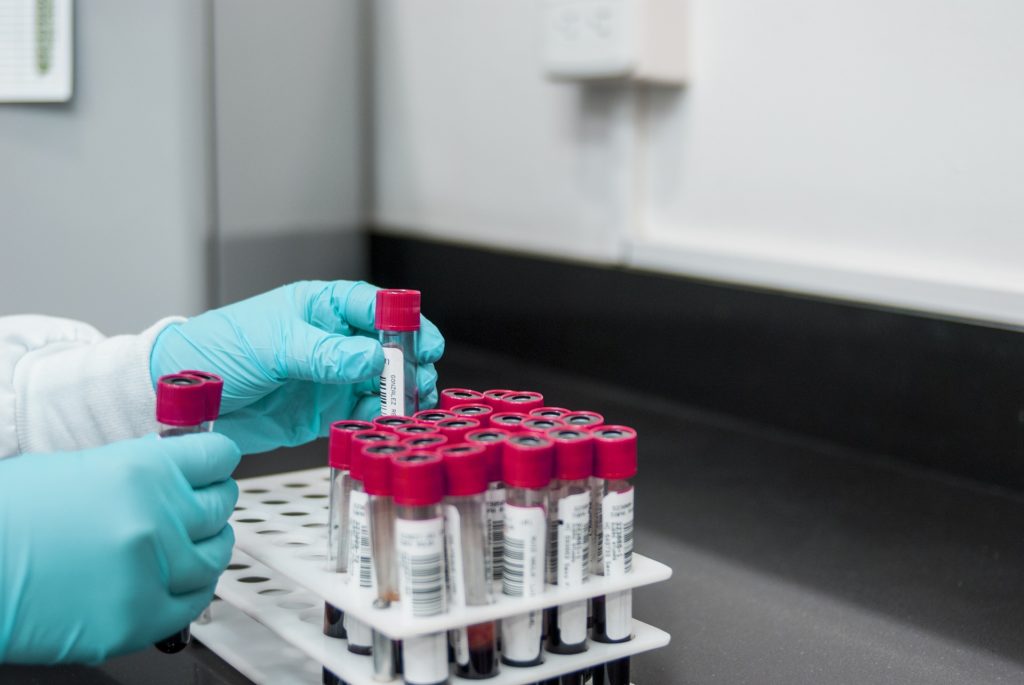Researchers at the University of Manchester have developed a new blood test that can help diagnose ovarian cancer faster and more accurately in women, particularly those under the age of 50, using a newer ovarian cancer biomarker.
The blood test can be administered by general practitioners/physicians.
The test includes the use of the emerging ovarian cancer biomarker, human epididymis protein 4 (HE4). The US Food and Drug Administration (FDA) approved the use of HE4 for monitoring remission in patients with epithelial ovarian cancer, and also as a complementary marker that can be used in conjunction with the more commonly used cancer antigen-125 (CA-125) biomarker.
The University of Manchester researchers evaluated whether HE4 could more accurately identify ovarian cancer. They also looked at whether it could prevent women from undergoing more invasive tests such as physical exams and biopsies.
Ovarian cancer is the eighth most common cancer in women worldwide and is the fifth leading cause of cancer deaths among women in the US.
XTALKS WEBINAR: The Added Value of Flow Cytometry in CAR T-Cell Clinical Trials
Live and On-Demand: Tuesday, May 31, 2022, at 10am EDT (3pm BST/UK)
Register for this free webinar to learn the use of flow cytometry for the monitoring, phenotyping and characterization of CAR T cells in clinical trials. The featured speakers will discuss the role of flow cytometry in identifying the markers expressed on malignant plasma cells, which facilitates the selection of CAR T-cell therapy.
CA-125 is used for monitoring ovarian cancer patients during treatment and for ovarian cancer screening in certain cases such as individuals who are at high risk for the disease. On its own, CA-125 is not a reliable biomarker for ovarian cancer detection as levels of the protein can be elevated in non-cancerous conditions, including menstruation, pregnancy, endometriosis or uterine fibroids, or other cancers such as endometrial cancer.
Furthermore, nine in ten women with elevated CA-125 levels in their blood do not have ovarian cancer, but they had to undergo other further tests to confirm this. On the other hand, some ovarian cancers can be missed if CA-125 levels are too low, which often leads to diagnoses when the cancer has progressed to later stages. This warrants the need for more accurate tests based on a combination of new/better ovarian cancer biomarkers for more accurate identification.
The University of Manchester research into the new HE4-based ovarian cancer test was funded by the health charity Wellbeing of Women and the study involved collaboration between researchers at the University of Manchester, University of Birmingham and University of Exeter.
In the study, the investigators analyzed blood samples from 1,229 patients obtained over a 12-month period. The samples were tested for the diagnostic accuracy of HE4 as an ovarian cancer biomarker alone and in combination with CA-125.
The researchers found that when used in conjunction with CA-125, HE4 could improve ovarian cancer detection, especially in women under the age of 50.
“This is the first time that HE4 has ever been evaluated in a primary care setting, so it will be exciting to see larger-scale studies implemented to further assess its effectiveness as a diagnostic aid. Earlier diagnosis will have important implications for women’s treatment, care and ultimately, survival,” said Professor David Williams, Chair of the Research Advisory Committee at Wellbeing of Women, and based at the Institute for Women’s Health, University College London.
The researchers said that a larger scale study is needed to confirm the findings of their study.
“While our results require validation in a much larger sample, these findings are extremely promising. Ovarian cancer is notoriously difficult to diagnose at an early stage, as symptoms are often non-specific, including bloating, pain and feeling full quickly after eating. We also know that the current blood test we use to investigate symptomatic women for ovarian cancer in primary care – CA-125 – is less accurate in younger women,” Dr. Funston, an Academic Clinical Fellow in General Practice at the University of Manchester, said in a news release from the University of Manchester.
“We hope our research can contribute to a change in how quickly ovarian cancer is identified. This is especially exciting as there has been little progress over the years towards developing more accurate ovarian cancer testing approaches for use in primary care.”
The study has been published in the peer-reviewed journal Cancers.












Join or login to leave a comment
JOIN LOGIN